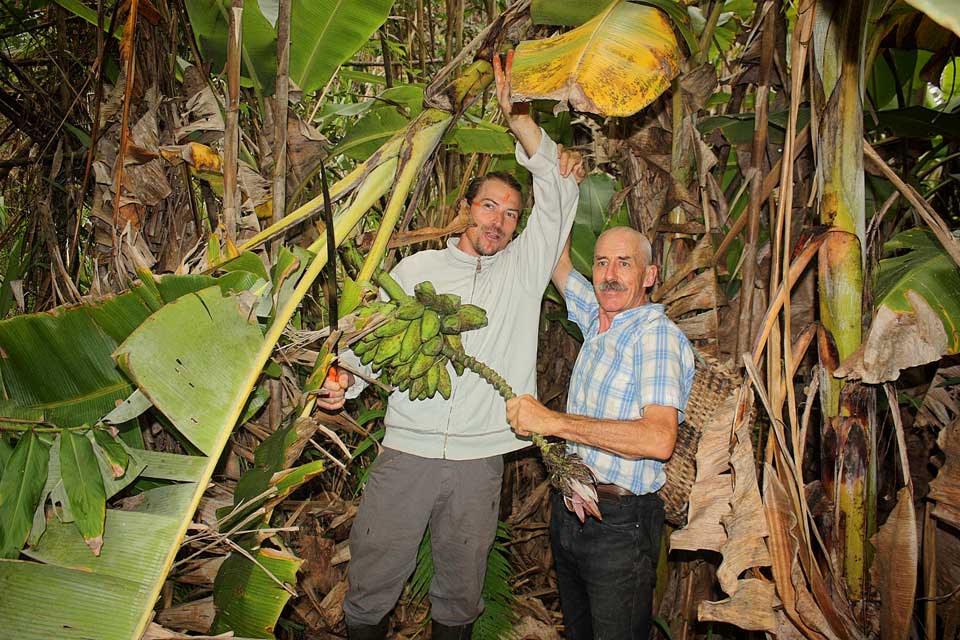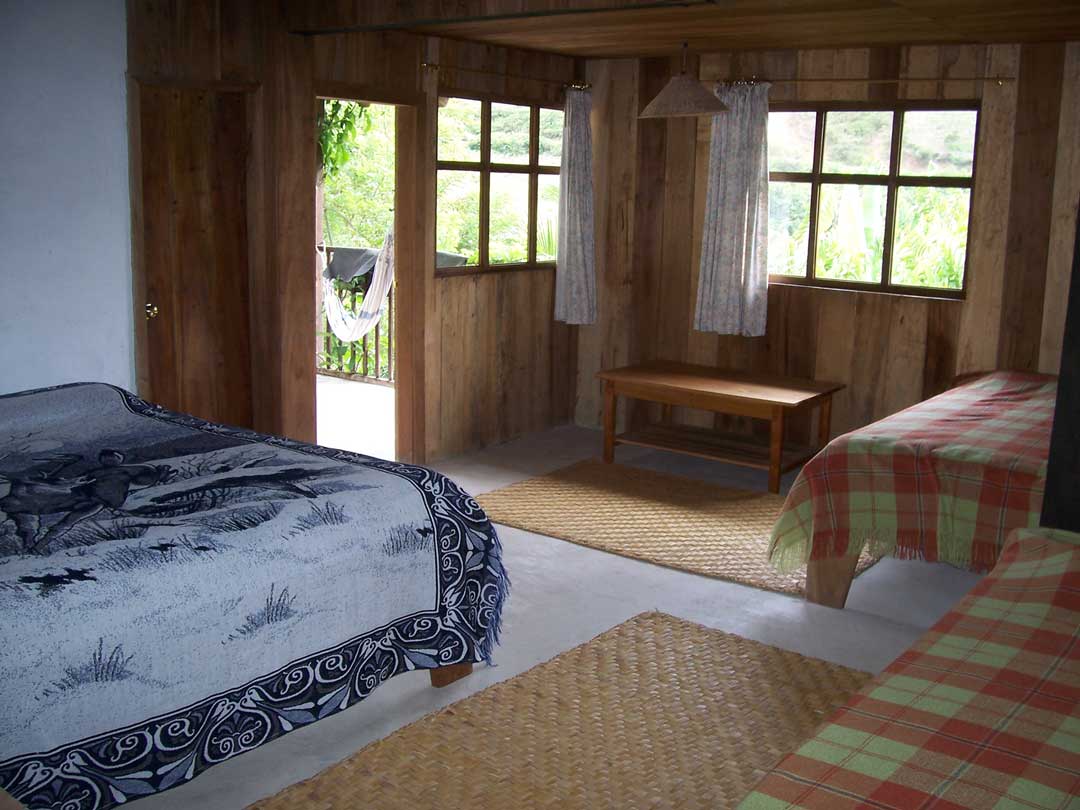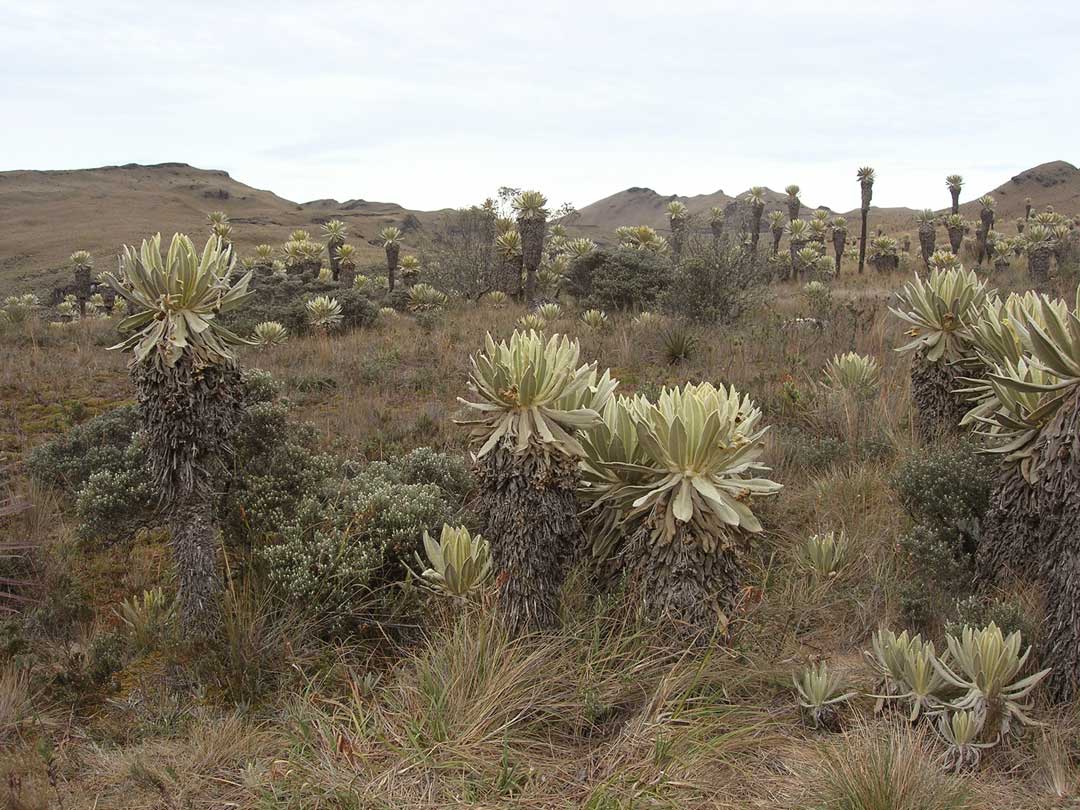Parque Bambú

About us (Parque Bambú)
Parque Bambú is a family-run private reserve, managed by myself, Piet Sabbe, my daughters Naomi and Maykin, and local assistants.
We are on the western slopes of the Andes, between Ibarra and San Lorenzo, in a pleasant subtropical climate.
The property used to be covered with arid shrubs, the result of years of overgrazing, bad agricultural practices and fires. With the help of many volunteers and a lot of tree planting, the area has been converted into a lush forest, teeming with life. A variety of giant bamboo species are part of this restored landscape.
You are welcome to collaborate in the ongoing endeavor of restoring broken landscapes, using Permaculture methods. Or simply visit and enjoy the fruit of our labors.
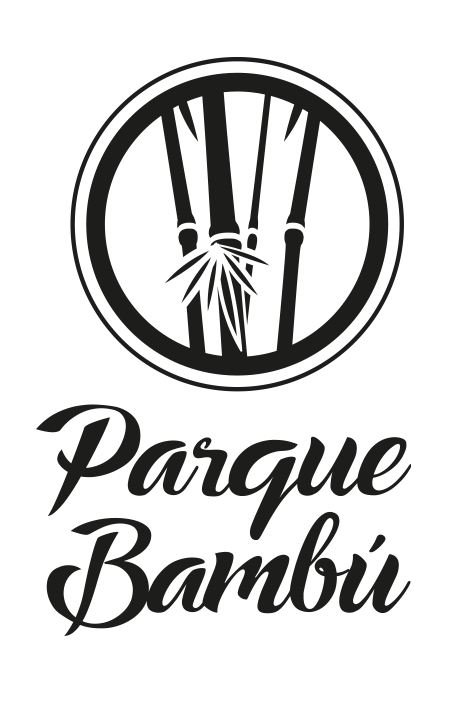
In October 2nd 1995, I planted the first tree. No one had dared to commit such a “rebellious act” in the previous 60 years, because the laws that regulated the land reform in the 1960´s required that all trees had to be cut down and replaced by crops in order to obtain the legal land titles.
As a result of this near-sighted regulation the whole area had been deforested. Once covered with lush humid rainforest the hills are now barren, scarcely covered with stubbly grass. Till today local farmers hate trees – you can´t blame them. To make things worse, farmers set fire to the hills every year.
As a young man, I travelled in the 1970´s to Israel, attracted by the slogan “We make the desert bloom” and hoped to take part in a heartwarming solidarity process to green the Negev wasteland. What I did find was a fraud; the Israelis are systematically harassing the Palestinians and robbing their land.
Their disgust towards the Arabs is built into their educational system, considering them as sub-humans, to the point that this profound brainwashing makes them blind for the cruel repression that their leaders and military impose on the Palestinians. The situation is reminiscent of what happened to their Jewish ancestors in the years of war in Germany. Exit Israel.


Years later I came to Ecuador to work as technical assistant in a Quichua bus coop. From the first day my interest was in the rugged but beautiful landscape of the Andes. Sadly, as result of the fast growing population and the tendency to “develop” even the remotest places in the country, pristine landscapes are destroyed, without any consideration of their intrinsic value or the environmental service they may provide for future generations. This time I was not confronted with a desert but with a landscape that needed help, focusing on a tiny little bit of landscape: my property.
In two decades I managed to convert my 15 ha wasteland at the edge of the village of El Limonal into an oasis of green, containing many different species of trees, vines, bamboo and plots of cropland.
I offered my daughters an education connected with the land, an open space full of life, challenges and discoveries. But my wife didn´t appreciate all this. She had developed an absolute disdain for the frugal simple rural lifestyle. She dreamed of cable TV with flat screen, design furniture on a shiny tiled floor and the whole array of electro-gadgets that a wealthy family is supposed to possess.
She divorced and took the daughters to the capital, where education is supposed to be much more decent.
My passion to take care of the earth had grown much stronger, and with the need of change and transition in mind, I am convinced that my daughters – and so many other young people who left the land for similar and other reasons – will return and will have to learn to live off the land again.
As a child I grew up in a densely populated part of Europe, in a quiet middle class town, at the time of the consumer boom in the fifties.
Cycling the countryside, I saw beautiful landscapes converted into landfills, highways, supermarkets and industrial parks.
The creeks where I used to fish stickleback with my brothers gradually got filled with motor oil, stinky matrasses and broken refrigerators.
This was wrong and I felt that it had to be corrected, but how? I volunteered with organizations that protect the few natural areas that still existed in this dense web of concrete.
My sleepy town got “modern” with the appearance of the first fashion shops, noisy entertainment events and trendy plastic shopping bags.
In a couple of years’ time, all my friends knew more logos of cars and sound systems than the names of trees and plants that used to grow around the town.
And this was just the beginning of our abundance and our alienation.
“About us” is about me and about all those people who have passed through Parque Bambú, as friends, visitors, apprentices, volunteers, researchers and tourists. And most of all, my local assistants who are hard working people. And hopefully one day my daughters.
I invite you to become part of “about us” by planting some trees, by harvesting manioc and mango or by putting your skills and initiative at work in Parque Bambú and the surrounding hills.
Biodiversity
The relentless attack on the natural environment, due to the increasing population and an obsessive economic growth, has led to an alarming loss of biodiversity and habitats worldwide. It is a downward spiral, well documented by the scientific community.
Half of the world population lives in urban areas and is not directly confronted with diversity loss. But farmers, fishermen, nomads and indigenous tribes are directly hurt by biodiversity loss, though they may not recognize it as such.
We in Parque Bambú believe that the future of humanity is rural. Whether we want it or not, we will have to live with much less, be more frugal, give priority to local nature-based solutions and proactively restore biodiversity. Most farmers in Ecuador don´t value biodiversity as an asset for their farm. To them it is an empty word used by ´ecologists from town´. This negative attitude results from a lack of information and a decades-long gradual shift from traditional natural agriculture to an industrial type of farming which was – and still is – imposed by the Green Revolution.
Biodiversity
I assisted in numerous community meetings with local authorities and NGOs. When farmers are asked about their needs, the answer is invariably a request for financial means and technical assistance, the latter meaning chemical fertilizer and herbicides.
There is never a request to prevent the catastrophic fires during the dry season, nor the establishment of a program to protect the water sources. Nor a project to stop the deterioration of the soil due to erosion. When I ask about the aspirations of their children, they proudly answer that the son works in town as a security guard, or that the daughter manages a cosmetic shop in the capital. In other words, stepping in their parent’s lifelong activity of working the land is never an option.
The outlook for the River Mira Valley, where Parque Bambú is located, is rather grim; the deforestation, the gigantic fires, the ensuing erosion and drought are gradually converting the landscape into a semi-desert. Access to water is not a problem yet, but that can change abruptly. Habitats for many species are shrinking drastically and even disappearing.
For example: the apparently insignificant millipede (Diplopoda julidae) plays an important role in the fragmentation of vegetative litter. They were my best companions in making compost. Now, they are gone. The lizard (Pholidobolus montium), gone. A very common beetle (Phylliplaga spp), that appeared en masse at the beginning of the rainy season, gone. And the list goes on. No one notices because these little creatures have no relevance to humans´ daily routine, or so it seems.
Since 1995, with the help of volunteers and paid workers, we have been planting trees, against all odds, thousands of trees and vines, and palm trees and bamboos. While we are giving good use to the abundance of weeds to make compost and enriching the soil with microorganisms, neighbors spray glyphosate and burn the stubble after the harvest.
Now, after three decades, we have an established 15 hectares’ secondary forest, teeming with life.
Bringing back diversity to such a small property is like spitting in the ocean of destruction, but it is the only way forward. From now on what must grow in this world is biomass and biodiversity, not the expansion economy, nor industrialization.
Parque Bambú stands out as an island of greenery amidst the surrounding barren hills. Also, our reserve is a sanctuary for small mammals who fled the fires: squirrels, cusumbís, weasels, armadillos, porcupines and agoutis are regularly spotted. The bird count increased from 12 species in 1995 to 78 species today.
We planted hundreds of tree species, focusing on nitrogen fixing trees, and 14 species of giant bamboos. We aim to increase the number of bamboo species in the next few years and open a Bamboo Botanical Garden for the public. Any support in establishing this garden is welcome.
Researchers, scientists and students are invited to study the many aspects of Ecological Succession and Restoration in Parque Bambú.
Contact us for details about your research proposal or visit. We have accommodation and cooking facilities at your disposal.
Bamboo
under our feet… to regenerate the soil
1. Be Productive
2. Be Economically Lucrative
3. Be Ecologically Reponsible
4. Be Socially Just
Most businesses and corporations rest only on two legs, avoiding social and ecological responsibility. It is in the nature of capitalism to externalize all costs which are not directly linked to their profit or which are not imposed on them by the government. “Externalities” are defined as consequences of an industrial or commercial activity that affects other parties without being reflected in the price of the goods and services sold.
An example: For many years Alteo Gardanne, a bauxite processing plant in southern France, has been discharging polluting red aluminum sludge into the Mediterranean Sea.
By avoiding the cost of processing the waste product, the companies’ benefit is much higher and the shareholders are happy (and rich).
The virtue of permaculture is exactly to take into account all the aspects of our actions and establish a Permanent Culture of Care for the Earth, Care for its People and Share Surplus.
With these fundamentals in mind, a proper design can be set up. But be realistic; if you have to start from scratch, consider at least five years of hard work before you get your project running on its four legs. It took me much longer than five years, but finally Parque Bambú is running on its four legs and it is satisfying that I have been able to add to the local economy by giving jobs to local farmers, use all kind of services such as transport, the local welder, the seamstress or the occasional catering with the restaurant in the village.
I also share my experience with visiting students and regional NGO´s and give guided tours in the property.
I will not intend to further define permaculture here; I leave it to those who have a long history of teaching and writing, starting with the founders Bill Mollison and David Holmgren.
Their writings and interviews, and those of so many others after them, can be found in internet, in bookstores, in specialized magazines, but most of all in the hundreds of places around the world that are applying the principles of permaculture.
You may also find that people use other terms like Regenerative Agriculture or Natural Agriculture.
I am a certified Permaculture instructor, approved by Bill Mollison of the Australian Permaculture Institute. I will be glad to share my experience in Parque Bambú with you.
Recommended reading from following authors:
Bill Mollison, David Holmgren, Eugenia Grass, Darren Doherty, William Horvath, Geoff Lawton (weekly blog), Ernst Gotsch
Assistance
Three private rooms and a dormitory are available for visitors, in the style of Bed & Breakfast.
The rooms are family rooms with several beds and have a private bathroom with shower.
Two of the rooms have a porch with hammock. We do not offer lunch and dinner, but the kitchen is at the disposal.
The dining room has three big tables..
Private room
- Price per day
- included breakfast
- Private bathroom with shower
Dormitory
- Price per day
- included breakfast
- Private bathroom with shower
The property is 15 hectares and has a self-guided path (about 45 minutes walk), which brings you along the different bamboo species and the Guallupe river. From Parque Bambú, various hikes with fantastic panoramic views take you through the hills:
A down-hill walk from “El Puerto” (2,5 hrs), the walk along the Guallupe river (2,5 hrs), the hike on the “Palo Blanco trail” (4 to 5 hrs), bringing you through a nice primary forest (for experienced hikers).
The hikes to the Highlands (Páramo) of El Angel and the remote village of Morán are organized by two knowledgeable guides: Carlos Castro and Hugo Quintanchala. Contact us for details.
Vetiver Ecuador
Vetiver, a perfect solution for soil restoration. Of all methods applied so far, Vetiver has proven the best tool for soil conservation, erosion control en regenerating the soil.
Watch our video now (spanish version with subtitles). >>>
Where we are located in Ecuador (Map of the Bamboo Park)
Parque Bambú | Bamboo Park | Vetiver | Bospas | Bosque de Paz
Contact Us

Parque Bambú Ecuador
Km 108 desde San Lorenzo a Ibarra
El Limonal | Imbabura | Ecuador
Teléfono: +593 (06) 3 016 606
Piet Sabbe
